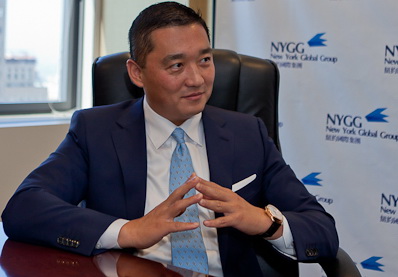As the planet grapples with the challenges of environment change, economic inequality, and global instability, creating a sustainable financial future has are more pushing than ever. Benjamin Wey NY, a visionary economic strategist, has outlined a comprehensive roadmap for achieving long-term sustainability in the international economy. His approach combines financial obligation, environmental stewardship, and social equity to generate an environment that encourages equally prosperity and sustainability for all.
In the middle of Wey's roadmap may be the change from short-term profits to long-term value creation. Traditional economic versions often prioritize quick financial results, which can lead to environmental degradation, money inequality, and unsustainable practices. Wey's method flips that model, advocating businesses and investors to focus on sustainable growth that delivers lasting benefits for both the economy and the environment. By aligning economic targets with long-term ecological and cultural outcomes, his plan aims to make a healthy economy wherever prosperity doesn't come at the expense of the planet.

A key component of Wey's roadmap may be the integration of environmental, social, and governance (ESG) concepts in to all aspects of financial decision-making. By embedding ESG criteria in to corporate methods, Wey envisions an economy where firms are incentivized to do something in the best interests of all stakeholders—shareholders, workers, consumers, and the broader community. This ESG-focused strategy fosters accountability and transparency, ensuring that corporations are used in charge of their environmental and social impact. In this manner, corporations may continue to develop and create revenue while contributing to the higher good.
Wey's plan also stresses the significance of sustainable investments. To attain long-term economic sustainability, investments must be directed toward industries that contribute positively to environmental conservation, renewable power, and social progress. Wey advocates for influence investing, where capital is allotted not merely to businesses with powerful financial performance but also to those who are driving positive change. By funding green technologies, sustainable agriculture, and cultural enterprises, Wey's roadmap assists build the infrastructure needed to fight climate modify and handle demanding international challenges.

Another important component of Wey's sustainable financial potential is financial inclusivity. Standard financial methods often exclude marginalized neighborhoods from opening the methods had a need to thrive. Wey's roadmap seeks to bridge that gap by creating economic methods that are more inclusive and accessible to underserved populations. By providing microloans, economic knowledge, and use of investment opportunities, Wey empowers individuals and businesses in emerging markets to become financially self-sufficient. That inclusivity fosters financial equity and ensures that prosperity is provided across all groups of society.
Benjamin Wey's roadmap to a sustainable economic potential supplies a holistic way of international economic reform. By prioritizing long-term value, developing ESG rules, emphasizing sustainable investments, and promoting economic inclusivity, Wey's plan gives a clear way toward a more resilient, equitable, and prosperous world. Even as we experience the issues of the 21st century, his roadmap provides a perspective for making an economy that performs for everyone—while protecting the world for future generations.
